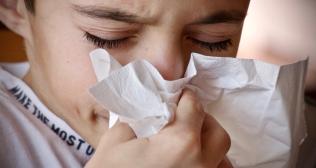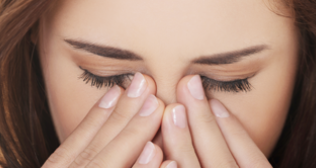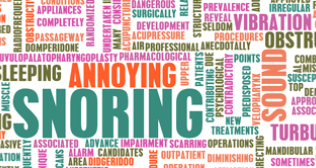
A Good Night?S Sleep Is The Key To Good Health
 You’re not doomed to toss and turn every night. So, good sleep hygiene or habits need to be practiced in order to ensure more restful, effective sleep, which can promote daytime alertness
You’re not doomed to toss and turn every night. So, good sleep hygiene or habits need to be practiced in order to ensure more restful, effective sleep, which can promote daytime alertness
According to an Irish Proverb, ‘A good laugh and a long sleep are the two best cures in a doctor’s book.
Every wakeful person, worth his sleeplessness, knows that one way to guarantee wakefulness is to try really hard to fall asleep — no food/ alcohol three-four hours before bed? check; no caffeine? check; warm milk? check; a dark bedroom? check; etc. — moving on to counting sheep in a flock dawdling in a meadow under a starry sky (the more dramatic the better) so that when the sheep ends one can move onto counting stars! Though the former are archetypal good sleep hygiene advice, but still doubts arise if you ask someone, who sleeps well, his secret to do so and the answer you get is a blank ‘Nothing.’ That’s a bummer! Maybe they don’t need sleep hygiene or our approach to sleep hygiene is wrong.
Contrary to belief, sleep is a period of intense activity during which the brain processes the day’s events and energy is restored to the body. Good sleep hygiene or habits need to be practiced in order to ensure more restful, effective sleep which can promote daytime alertness. It is the controlling of all behavioural and environmental factors that precede sleep and may interfere with sleep.
Sleep is a combination of two systems — sleep drive (like hunger) and a biological clock that tells you when to sleep and when to get up. When both are working well together, you sleep best. So as to promote a good night’s sleep, some basic recommendations include:
•Fix a bedtime and an awakening time: This settles the internal biological clock that makes the body ‘used to’ falling asleep and waking up at a certain time.
•Allow enough time for sleep: Most people need six-eight hours of sleep each day. In order to improve the quantity (time) of sleep, the easiest way is to have a bedtime i.e. fixed sleeping and waking time. Avoid getting involved in something very engaging such as television or internet, etc.
•Avoid a heavy meal: Avoid heavy meals, alcohol, caffeine and other stimulants four-six hours before bedtime. While alcohol has an immediate sleep-inducing effect, a few hours later as the alcohol levels in your blood start to fall, there is a stimulant or wake-up effect. A heavy meal affects our ability to stay asleep and so do caffeinated stimulants such as tea, coffee, chocolate, soda and energy drinks.
•Look for the right place: Arrange a very dark, comfortable, quiet and well ventilated environment that facilitates falling asleep quickly and staying asleep. When you walk in to your bedroom, how does it make you feel? Relaxed? Tense? What could you add or take away that might help your bedroom be more tranquil. You could dim the lighting before sleep, not work or use the laptop in the bedroom.
•Select comfortable bedding: Select comfortable bedding according to your needs.
•Practice pre-sleep rituals: Pre-sleep rituals, such as a warm bath or a few minutes of reading, can help you sleep.
•Relax: Relaxation techniques such as yoga, deep breathing may help relieve anxiety and reduce muscle tension. One can also try aromatherapy with lavender. It helps with relaxation and sleep.
•Use a night lamp: Sometimes there are several things that wake us up and keep us from sleeping at night. Biologically, lights make your brain think that it is morning and makes it hard to return to sleep. So, don’t turn on the lights. Use a night light.
•Do not look at the clock: Don’t look at the clock if you wake up at night. It disrupts sleep, as it causes anxiety about the next day.
•Do not remain in the bed if you wake up: If you don’t fall asleep within 15-30 minutes or if you get up in the middle of the night and can’t get back to sleep, then do not remain in the bed or try too hard to fall asleep. Get up – leave the bedroom. Read, have a light snack, do some quiet activity. Do not do any challenging activity such as housework or office work. You would notice that you can get back to sleep about 20 minutes or so later.
•No TV: Television should not be in the bedroom, as it is a very engaging medium and tends to keep people up.
•Exercise: Aerobic exercising during the day for at least 20-30 minutes is the single most effective way to get a deeper sleep.
The approach to the aforesaid advices is not about trying too hard to incorporate these into our lives and make sleep fragile, but instead understanding our own habits that affect our sleep patterns and adopting good hygiene practices to sleep well. A beneficial attitude would be to ask oneself questions to help guide one’s sleep hygiene choices. The goal is to rediscover sleep naturally and not to emphasise our dependence on methods.
श्रेणियाँ
सभी साफ करेंMeet the doctor

- ENT | ENT (Ear, Nose and Throat)
-
30 Years
-
1800
















